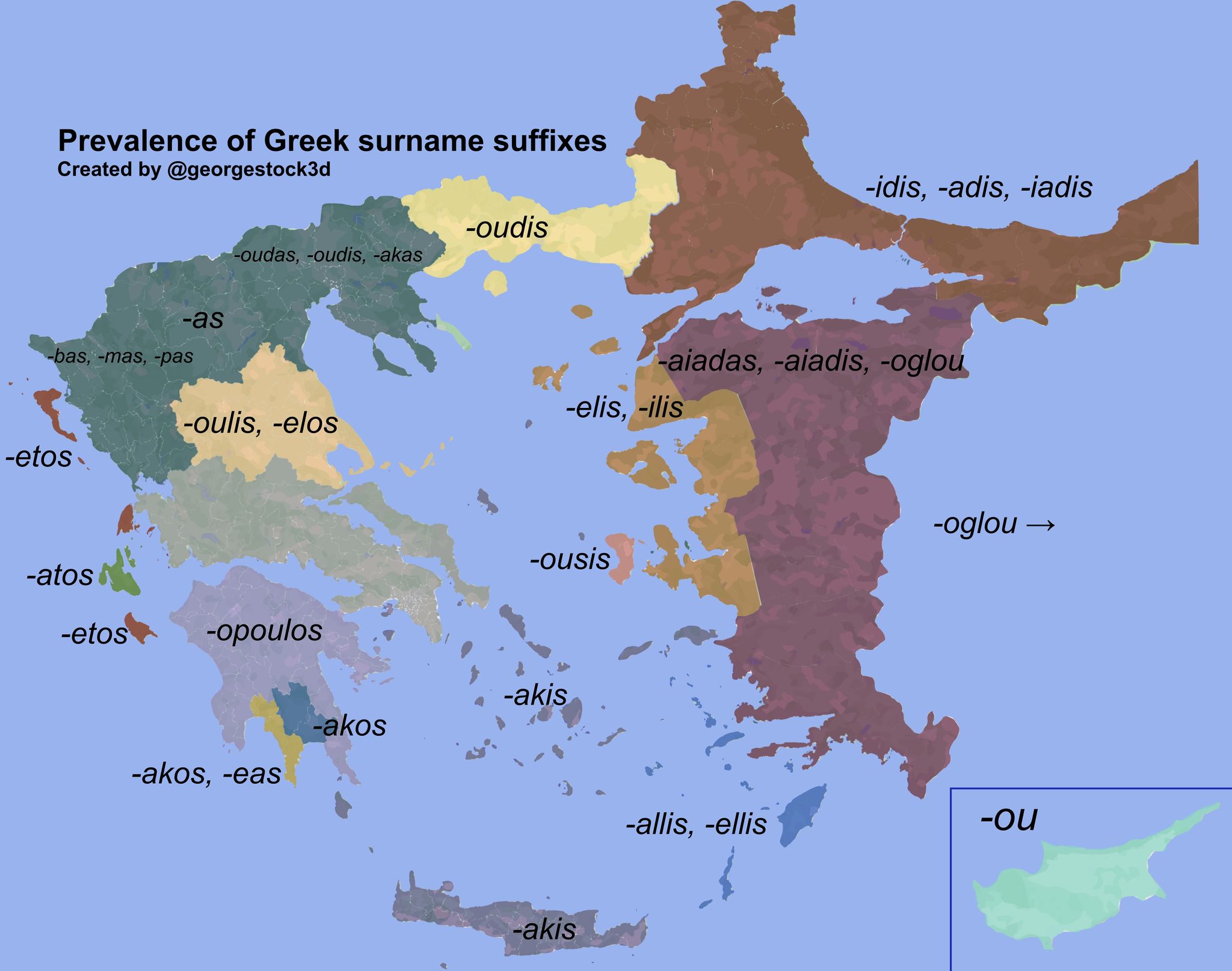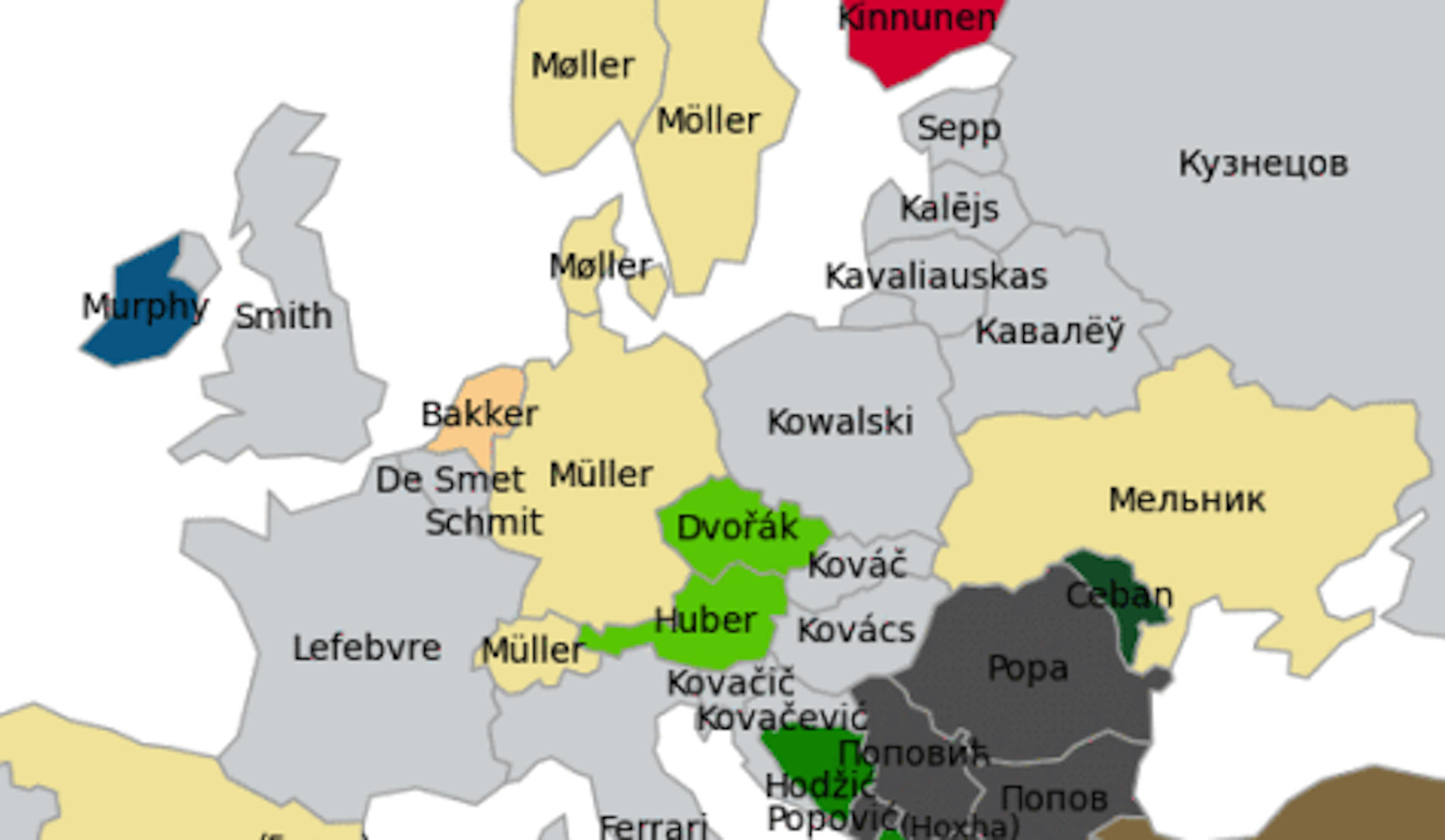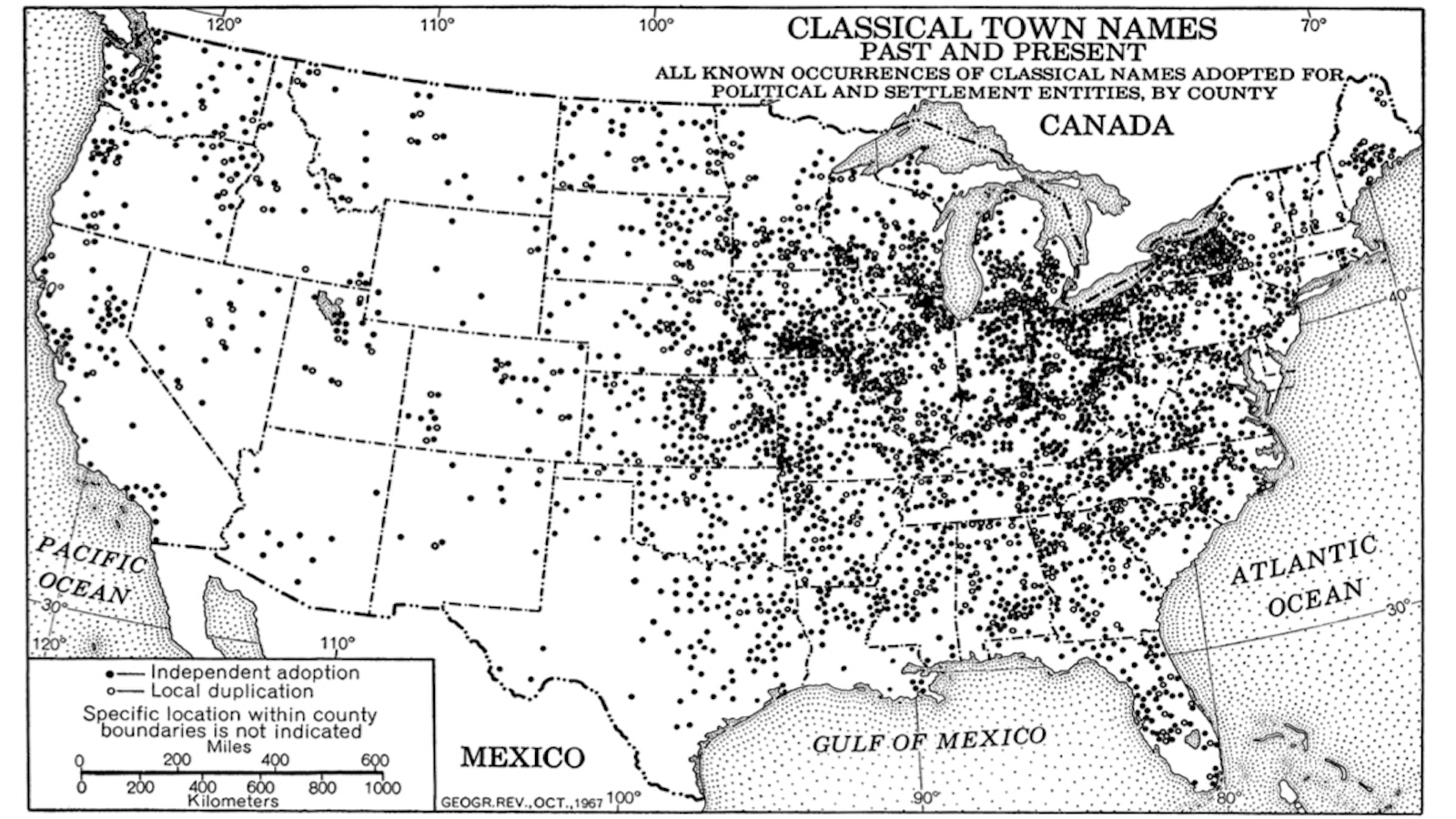How Greek surnames reveal their geographic origins

- If you have a Greek surname that ends in –akis, it’s from Crete.
- Other suffixes point to other regions in and around Greece.
- All indicate origin or descent. One is…Turkish.
Michael Dukakis could have been the first Greek-American president. But in November 1988, the then-governor of Massachusetts lost the election to George Bush Sr.
Perhaps the U.S. wasn’t ready yet for a commander in chief with an exotic surname and non-European heritage (Dukakis’ father was born in a small town on the coast of Asia Minor, now part of Turkey). To Greeks, of course, that surname is not exotic at all. Thanks to its ending, the name has a very local flavor. As this map shows, many Greek surnames have suffixes that tie them to specific regions of Greece — and large parts of Turkey, until the 1920s home to large numbers of Greeks.
A family name ending in -akis, as in the case of the presidential candidate, points back to the island of Crete. It’s a diminutive, meaning “Little Doukas,” and by extension, “Son of Doukas” — Doukas being a name and title derived from the Latin dux, also the source of the noble rank of “duke.”
A more famous American with an –akis surname is Jennifer Aniston. Or she would have been, had her Cretan-born grandfather Antonios Anastassakis not anglicized his surname when he emigrated to the U.S. in 1935.
The –akis ending is also popular on the Cyclades — the islands north of Crete. The other suffixes shown on the map also indicate origin or descent.
A quick caveat: the map denotes the origin of names, not persons. People move and take their names with them, as with Dukakis Sr., who was born in Asia Minor despite his Cretan surname.
- Names ending in –allis or –ellis indicate an origin on Rhodes or other islands of the Dodecanese.
- If your Greek surname ends in –ousis, your family may come from the Northern Aegean island of Chios.
- If it’s –oudis, you can trace your lineage back to Thrace.
- Or Macedonia, where –oudas, –akas, and –as are also popular.
- Surnames ending in –bas, –mas, or –pas may come from Epirus, in northwest Greece.

- Does your name end in –etos or –atos? That’s the Ionian islands for you.
- If the suffix is –eas or –akos, the origin of your surname is in Laconia, in the south of the Peloponnese — as is the case with actor Billy Zane, whose full name is William George Zanetakos.
- The rest of that peninsula is a popular point of origin for people whose names end in –opoulos. One example is Spiro T. Agnew, Richard Nixon’s vice president, whose father’s original name was Theophrastos Anagnostopoulos.
- If your name ends in –oulis or –elos, find your family tree farther north, in Thessaly. If it’s –ou, think Cyprus. One of that island’s most famous sons was the singer George Michael, born as Georgios Panayiotou.
- The suffixes –idis, –adis, and –iadis were popular in the Byzantine heartland, now Istanbul and the surrounding area. Names ending in –aiadis and –aiades originated farther south in Asia Minor.
- –oglou also means “son of,” but it’s of Turkish origin. Elia Kazan, the director of such classic films as A Streetcar Named Desire and On the Waterfront, was born in Istanbul as Ilias Kazantzoglou.
Of course, not all Greek surnames fall within this category. If you want to research the likely origin of your own epónymo, type it in to this search engine, and it will show up where it is most prevalent. (You will need a Greek keyboard. Here you go).
Strange Maps #1255
Got a strange map? Let me know at strangemaps@gmail.com.
Follow Strange Maps on X and Facebook.





